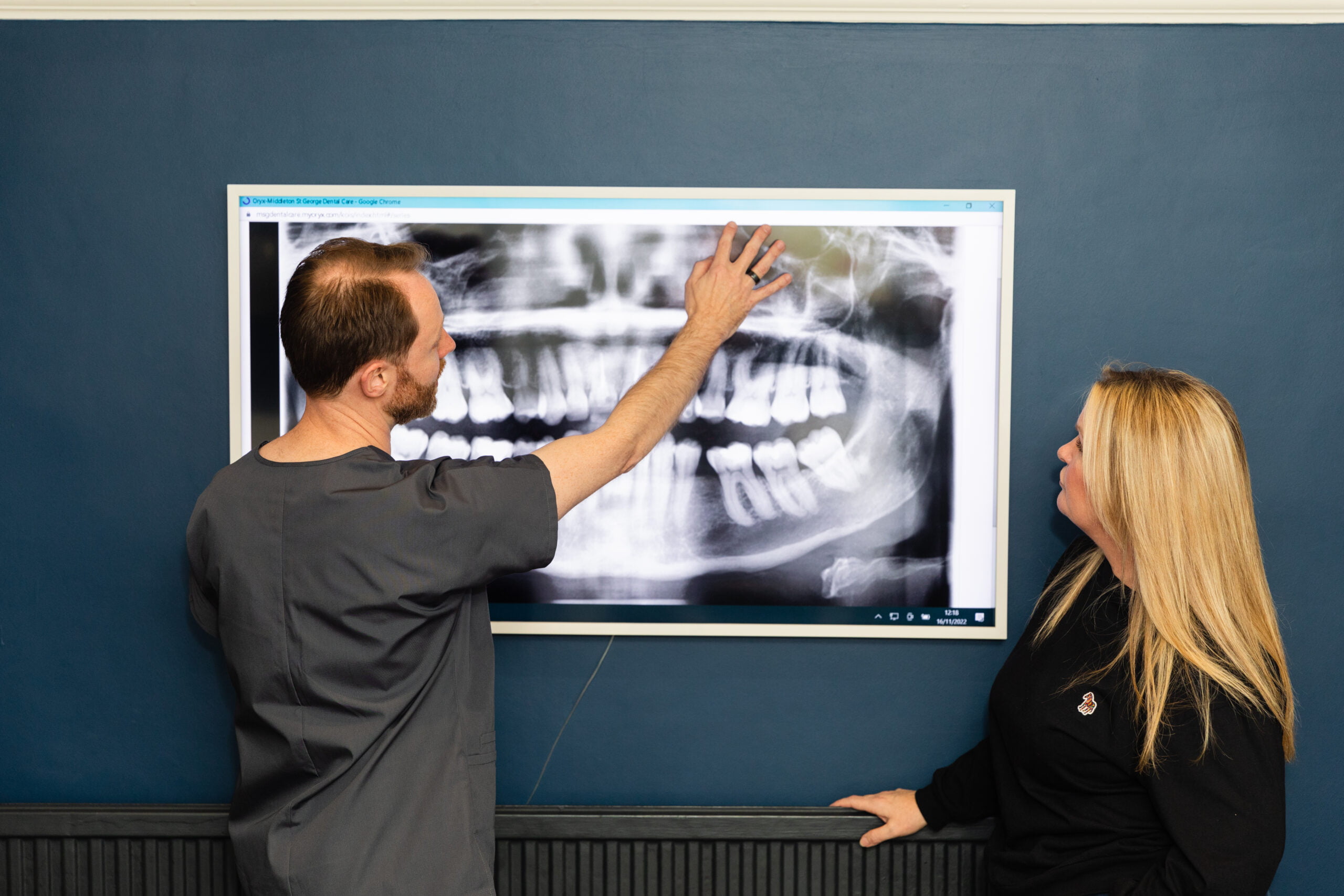What are dental implants?
Dental implants are small titanium posts that act like artificial tooth roots. A dentist places them into the jawbone during a simple surgical procedure. Once in place, they can support a single replacement tooth, several teeth, or even a full set of teeth —depending on how many implants are used.
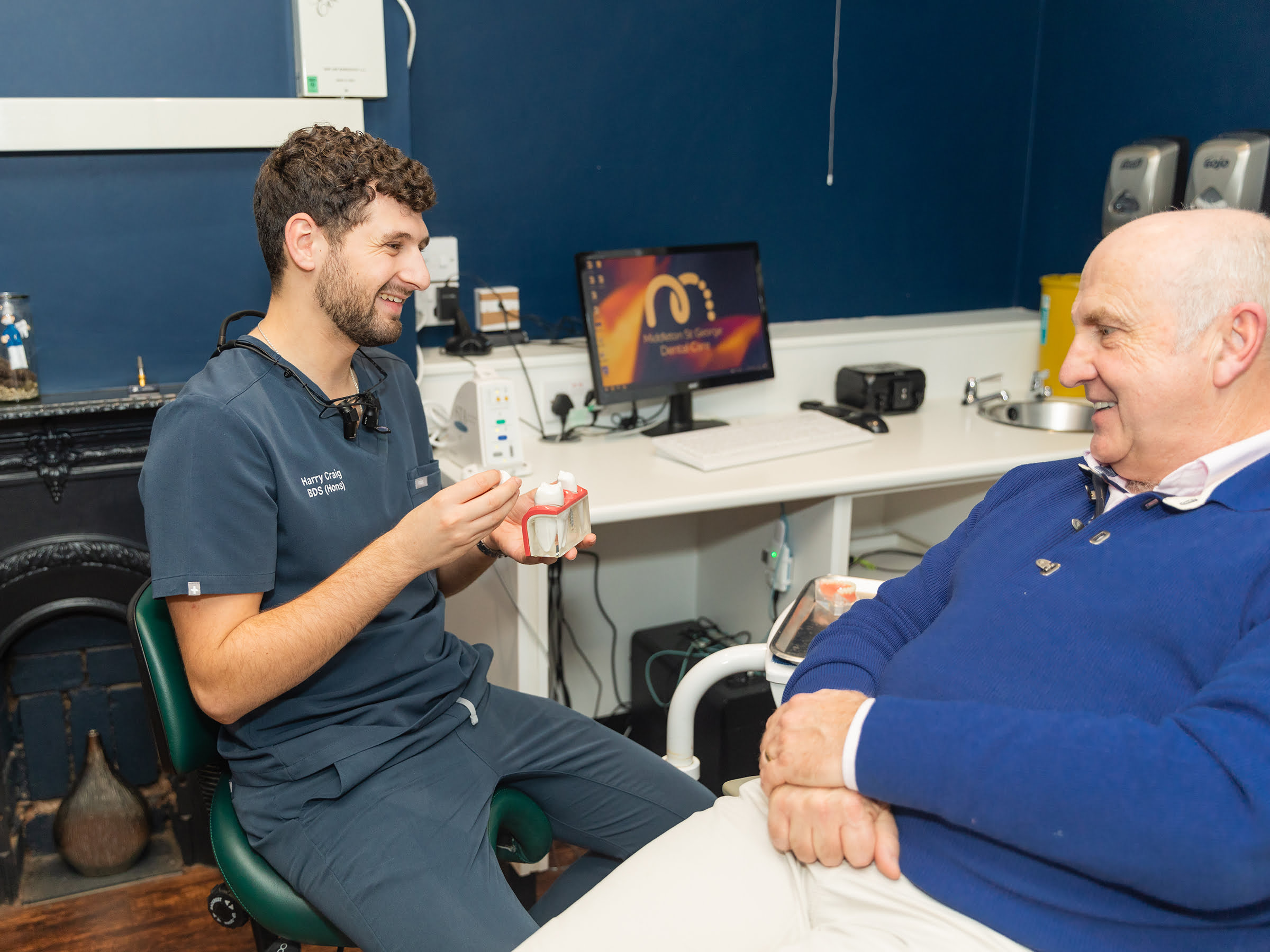
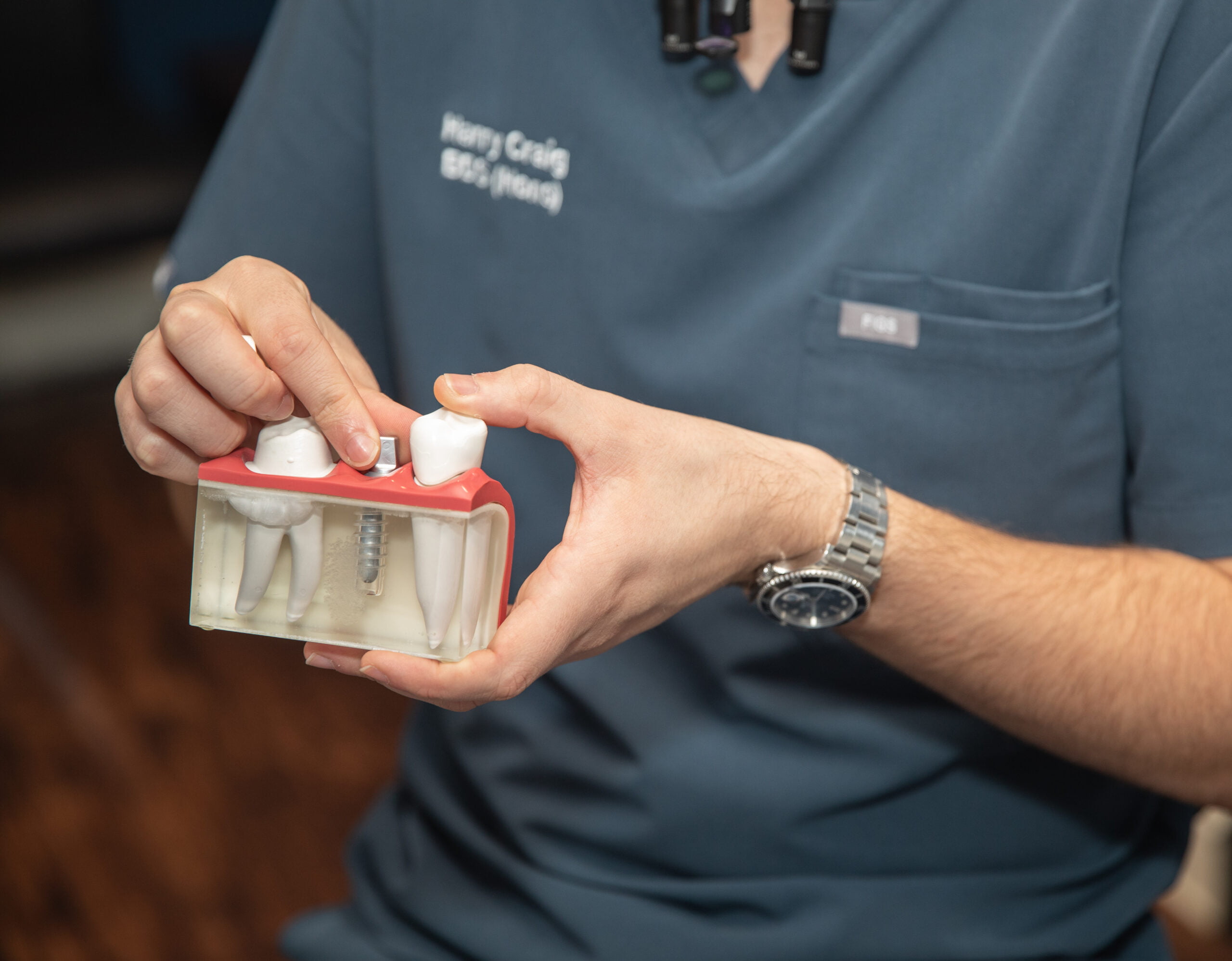
Why choose to have a dental implant?
Dental implants offer a long-lasting, secure way to replace missing teeth. They look and feel like natural teeth, allowing you to eat, speak, and smile with confidence, without worrying that your replacement tooth or denture will slip or move.
Missing teeth can affect more than just your smile. They can change the way you chew and speak, and over time may even alter the shape of your face. When a tooth is lost, the surrounding teeth can shift, and the jawbone and gums in that area can shrink.
Dental implants help prevent these changes. They support your jawbone, keep your remaining teeth in their proper positions, and help maintain your natural facial shape. As a result, implants can greatly improve your comfort, appearance, and overall quality of life.
Let’s get startedWhat advantages do dental implants offer?
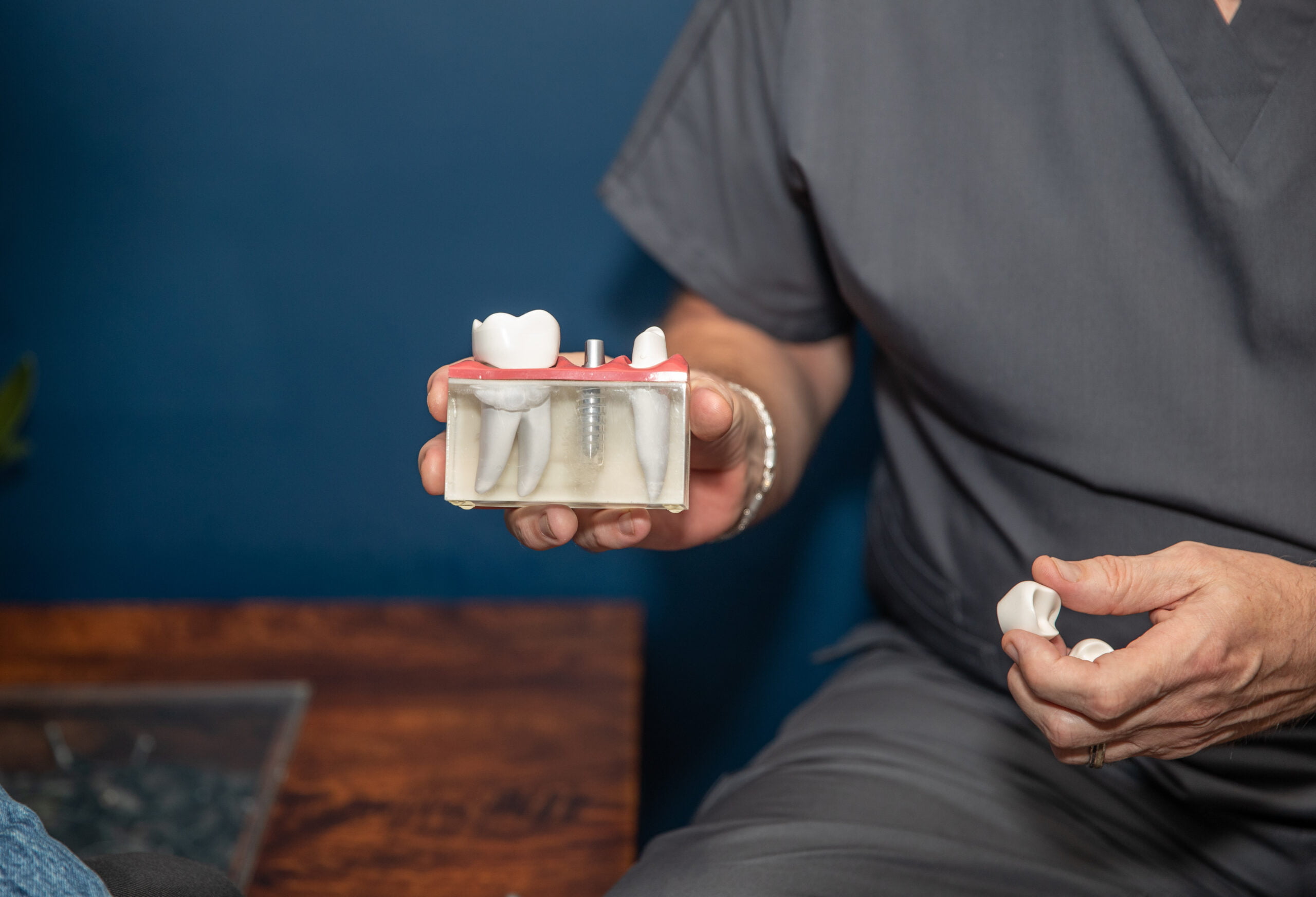
Supportive
Dental implants help maintain healthy jawbone in the area of your missing tooth or teeth, preventing bone loss and supporting your natural facial shape.
Strong
Because dental implants fuse securely with your jawbone, they remain firmly in place. They won’t slip, shift, or become loose over time, even when you eat or speak.
Natural Looking
Dental implants look, feel, and function just like real teeth. They blend beautifully with your smile and allow you to feel confident in your appearance.
Innovative
Dental implants combine advanced digital technology with the skill and expertise of our team to create a precise, comfortable, and highly aesthetic restoration.
Discover the 12 secrets of dental implants view here
What does the treatment involve?
Dental implant treatment can take several appointments to reach the desired outcome. However, it will all be worth it once you are flashing your new winning smile!

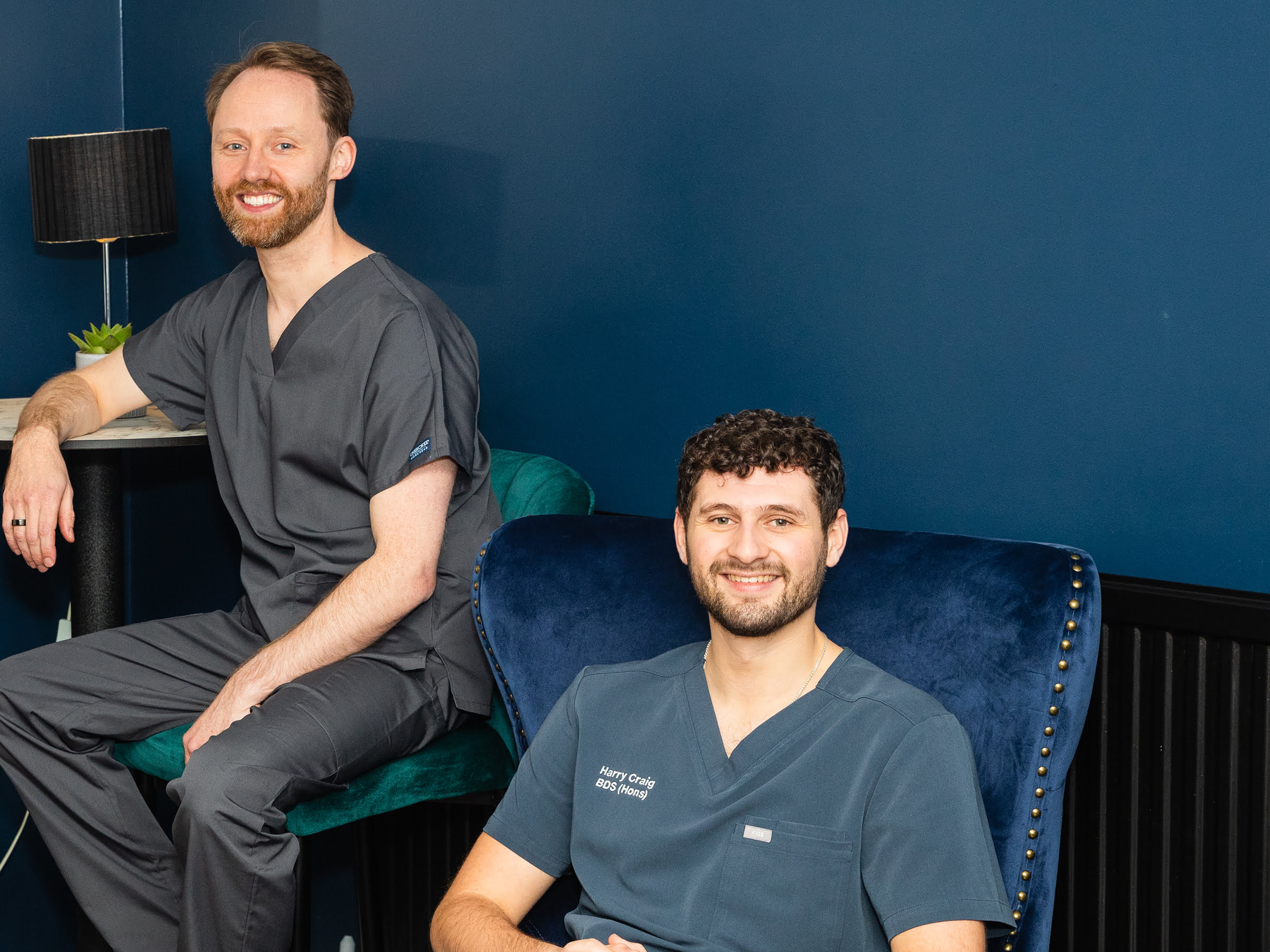

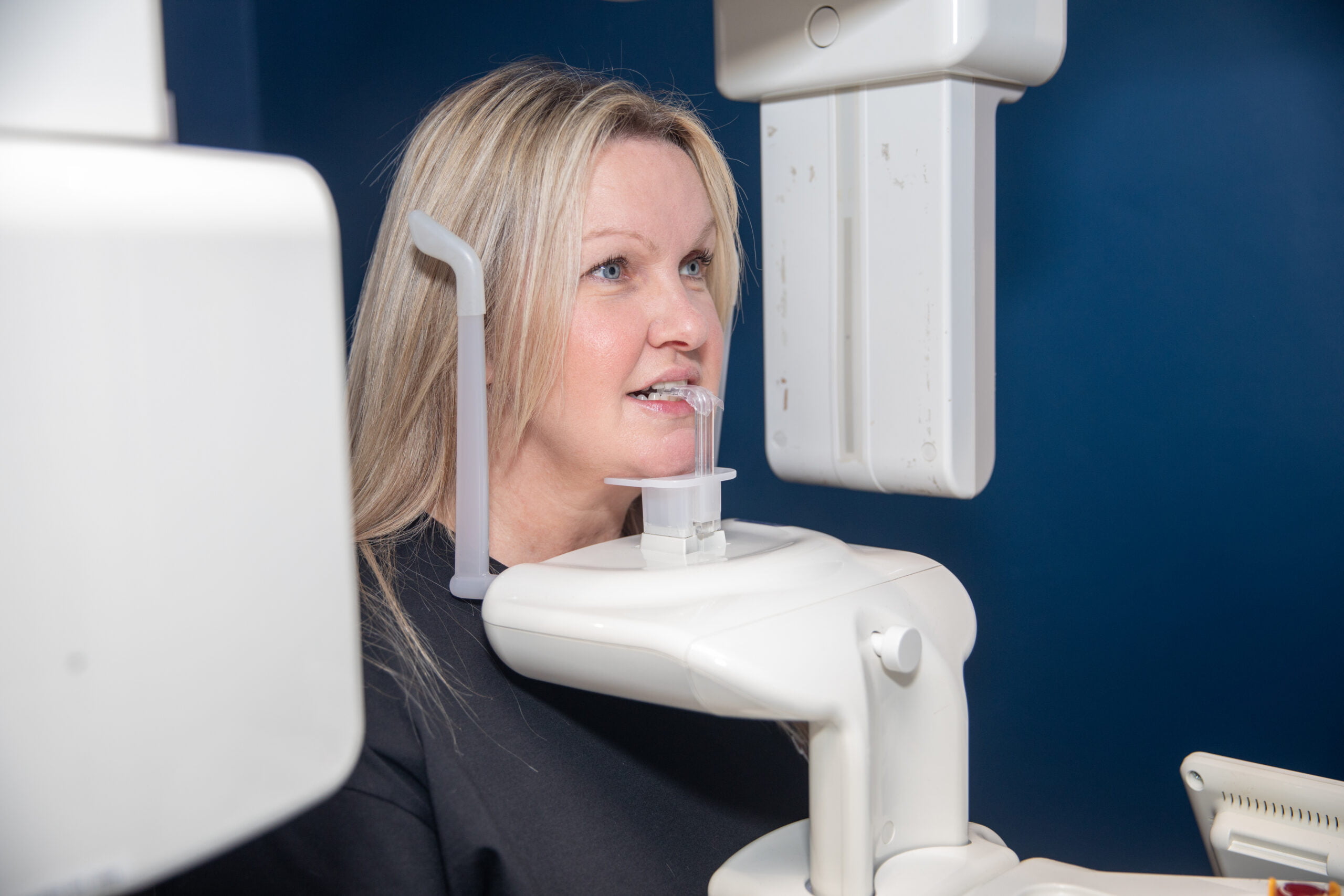
-
Consultation
We invite you to come in for a full face to face consultation, including a thorough examination and assessment of your teeth and gums. We ensure you are suitable for implant treatment and agree on your treatment plan, including a timeframe and estimated costs. -
Planning & preparation
We use cutting edge digital scans, images and x-rays to accurately plan the optimum positions for your implants. If any preparatory treatment is needed, such as a bone graft, we schedule and complete this. -
Fitting & healing
We place the titanium implant in your jawbone, taking care to use local anaesthetic to minimise any discomfort. The implant will take around 3-6 months to fully heal and integrate with your natural bone. To protect your gum during this healing process, we fit you with a temporary tooth. -
Treatment complete!
When your implant has fully healed, we fit your custom crown or bridge to finish your new smile. We make sure you are comfortable with how to care for your implant and answer any of your questions before leaving you to enjoy showing off your smile!
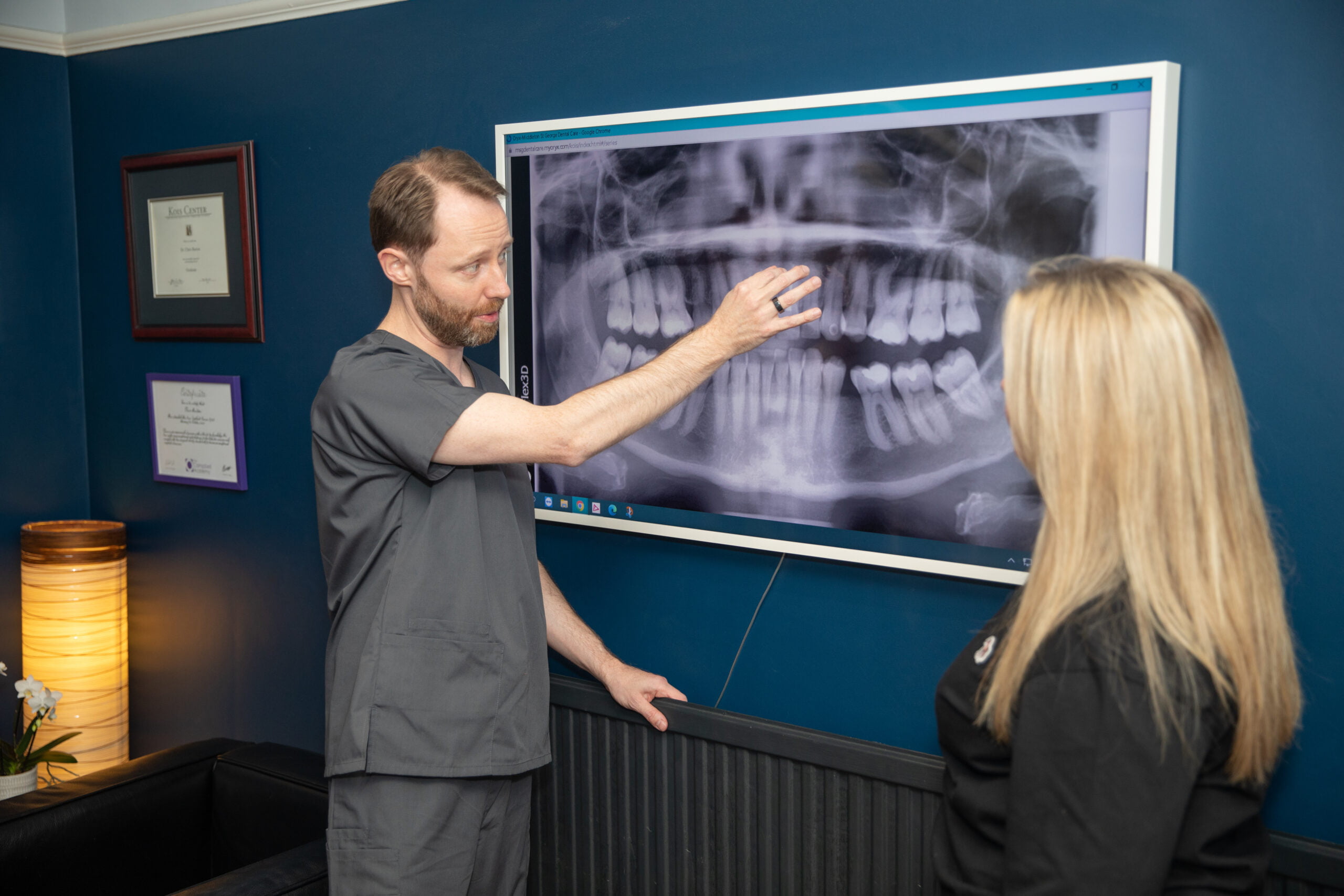
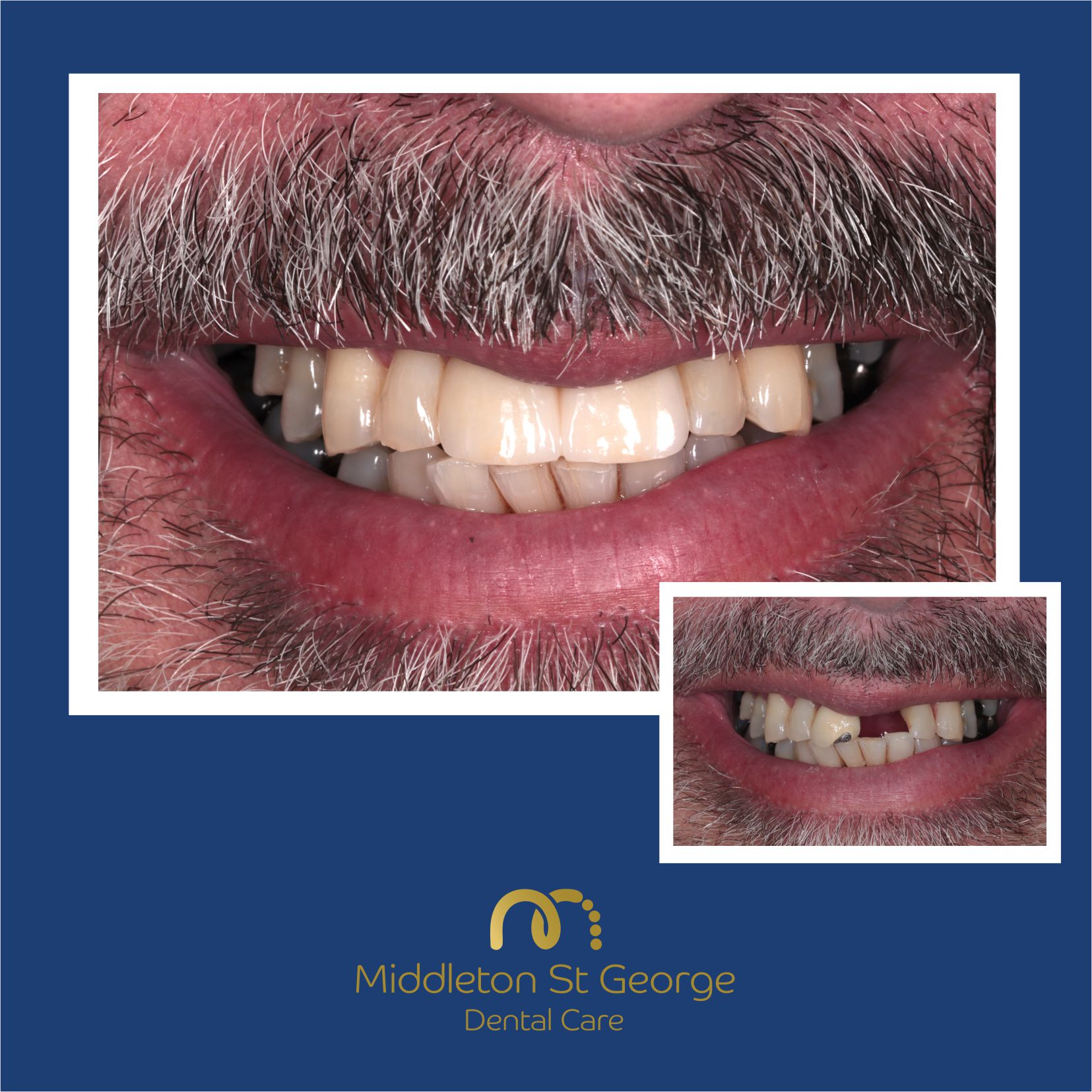
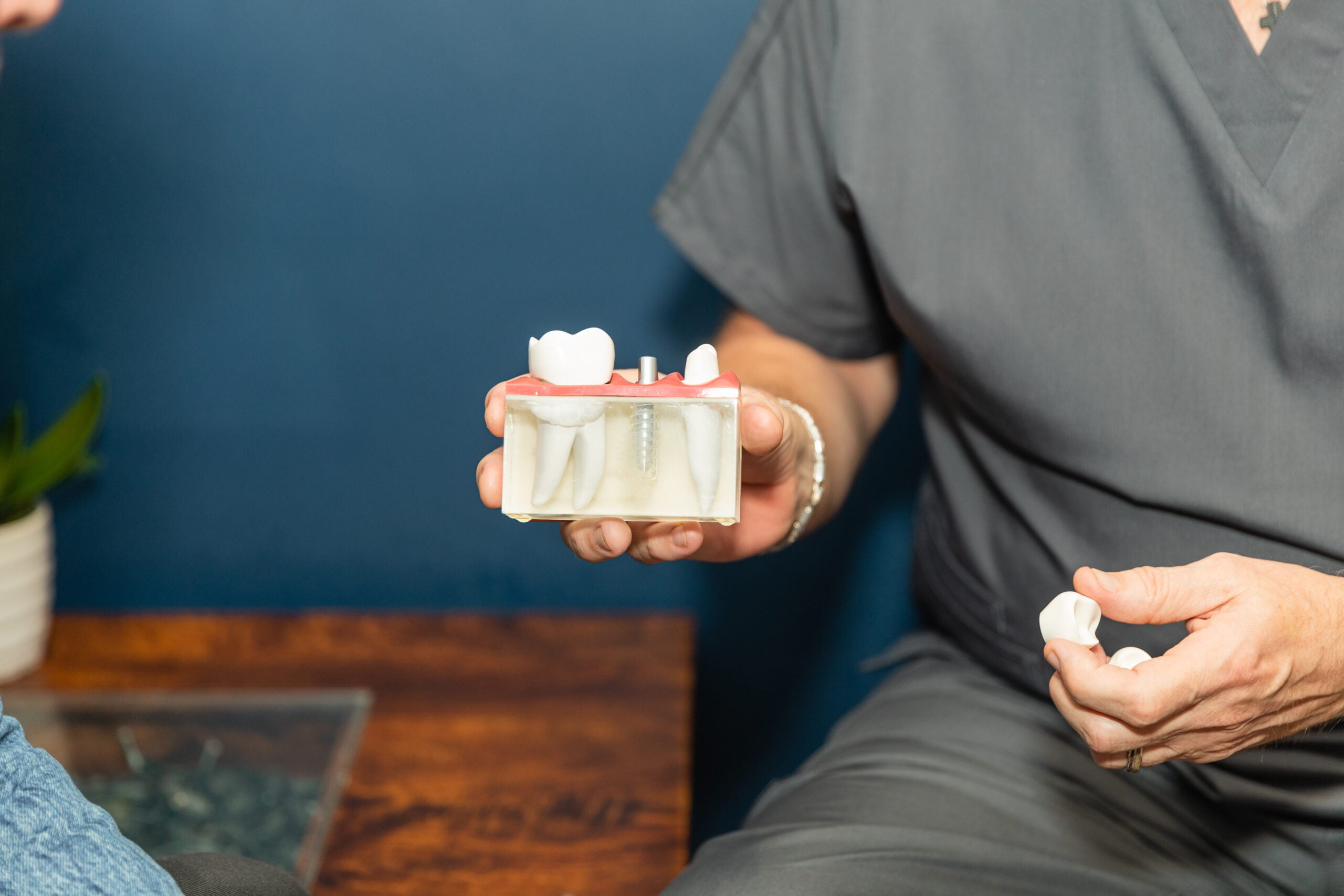
Treatment results
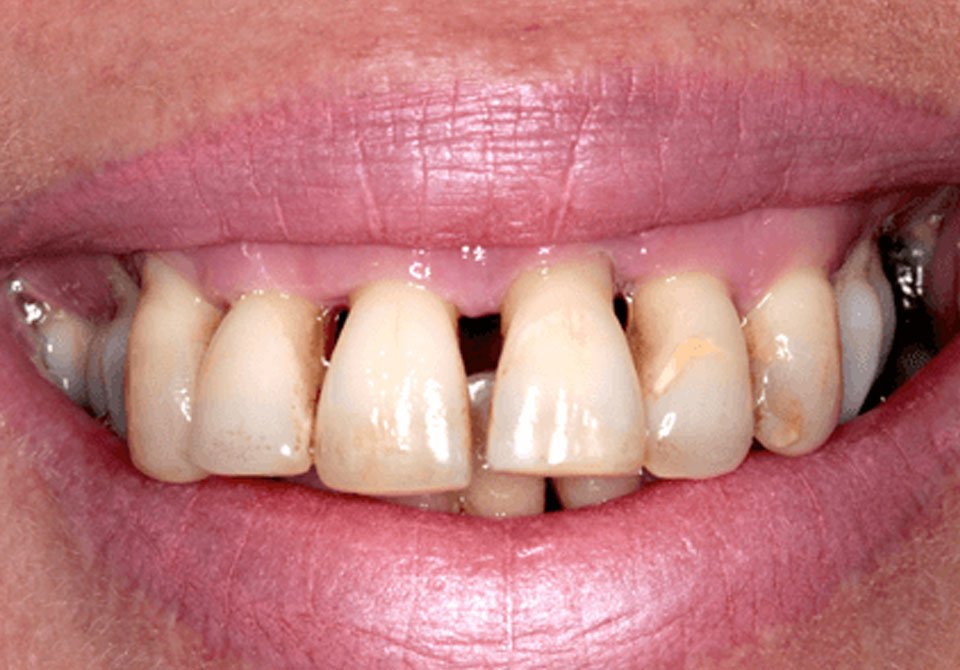
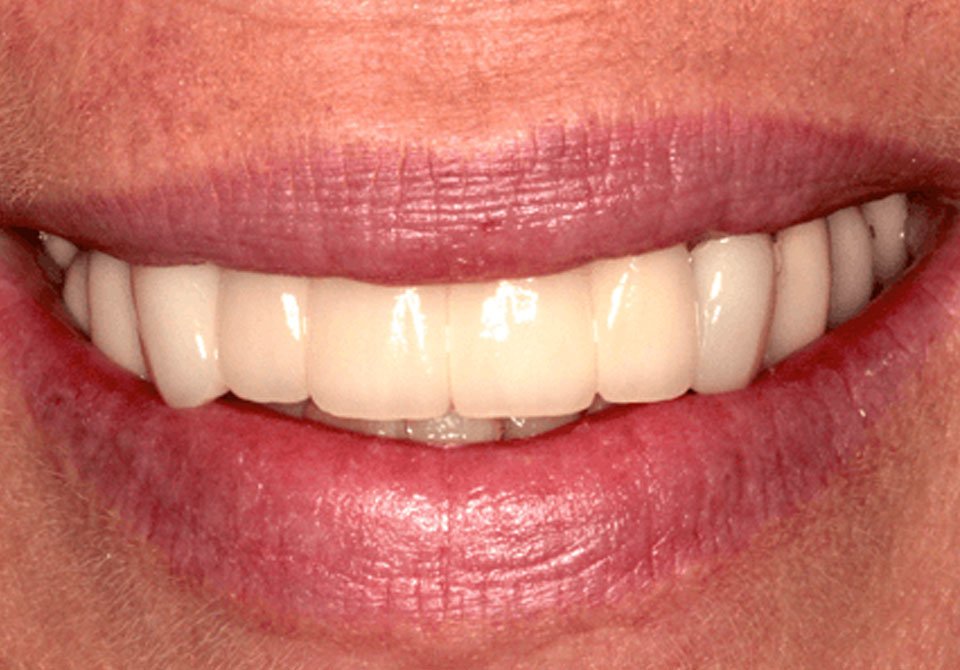
Before treatment
This lady had been unhappy with her front teeth for years. The front 4 teeth had been so badly affected by gum disease that they needed removing.
After treatment
Once the front 4 teeth had been removed, 2 dental implants were placed, supporting a porcelain bridge, and the rest of the teeth in the upper arch were restored with crowns to give them back their natural appearance and function.
See more resultsWe believe everyone deserves access to quality care.
That’s why we offer convenient, payment plans
Your dream smile doesn’t have to wait. Pay in easy, monthly instalments with Medenta.
Enjoy financing on treatment plans up to £25,000, with no upfront payment required. Spread the cost over up to 12 months, simply and stress-free.
Whether you’re planning a single implant or a full smile transformation, we’re here to make it affordable.
*Ask us for a personalised quote—no obligation.
*Terms apply: Subject to credit approval, age restrictions, and minimum spend..
See full details
Frequently asked questions
-
What are dental implants made of?
The most common material used for a dental implant is titanium or a titanium alloy. Ceramic may also be used in patients wishing to have a non-metallic option.
-
What are the benefits of having a dental implant?
- Preserves adjacent teeth – No need to grind down healthy neighboring teeth (unlike bridges).
- Restores full chewing function – Lets you eat comfortably and confidently, just like natural teeth.
- Prevents bone loss – Stimulates the jawbone to maintain its structure and prevent shrinkage.
- Long-lasting solution – With proper care, implants can last a lifetime.
- Natural look and feel – Blend seamlessly with your smile for a confident appearance.
- Stabilises dentures – Provides secure support for removable dentures, especially in the lower jaw.
- Improves speech – Prevents slurring or slipping that can occur with ill-fitting dentures.
- Easy to care for – Brush and floss like natural teeth—no special cleaning tools needed.
- Boosts confidence – Restores your smile and eliminates worries about loose or missing teeth.
-
What are the risks associated with a dental implant?
There is always a small chance that the dental implant will fail to integrate with the jawbone and have to be removed. Certain medical conditions can put you at a higher risk for implant failure. As with any surgery, there is a potential risk of surgical complications when placing a dental implant. Improperly positioned dental implants can make it difficult–if not impossible–to place a useful dental restoration in the mouth. Implant supported restorations do not have the same feeling as a normal tooth and it is possible to put too much pressure on them when chewing, leading to damage of the implant restoration or opposing tooth.
Any risks will be identified at the consultation stage when CBT scans and x-rays will be used to help assess bone density and suitability for implants.
-
What is the alternative to replacing a missing tooth with a dental implant?
Bridges, dentures or partial dentures can replace missing teeth without requiring implants. The missing tooth or teeth can also be left without replacement. This, however, can lead to other problems such as an unstable bite or unwanted movement of the surrounding teeth.
-
Can a bite affect dental implant placement?
If you have a misaligned bite, the restorations placed on the dental implants will be at greater risk for fracture or failure. Proper alignment of the teeth prior to dental implant placement leads to a more aesthetic result. Bite and tooth alignment problems should be addressed prior to dental implant placement.
-
Are there any post-treatment limitations once I have a Dental Implant placed?
You should be careful not to disturb the surgical site immediately after dental implant placement. This means no chewing on the side of the implant and careful cleaning methods for several weeks to a month. The dental implant takes several months to totally fuse to the jaw, so fewer disturbances to the area means a higher success rate. If you have a temporary denture to replace your missing dentition, it is important that the denture does not rub on the surgical site.
-
How long do dental implants last?
Dental implants have the potential to last a lifetime if they are properly looked after. This includes maintaining an excellent brushing and flossing routine, looking after your general health and attending regular check up appointments with your dentist. The crown or bridge that the implant supports may need to be replaced over time due to normal wear and tear.
-
Is dental implant treatment painful?
We use local anaesthetic during dental implant surgery to ensure you are comfortable during the procedure and unable to feel anything we are doing. After treatment, it is normal to experience some discomfort, which can be managed with pain relief advised by your dentist. Implant treatment is often less painful than having a tooth extraction, and most people are able to return to their usual routines the next day.


